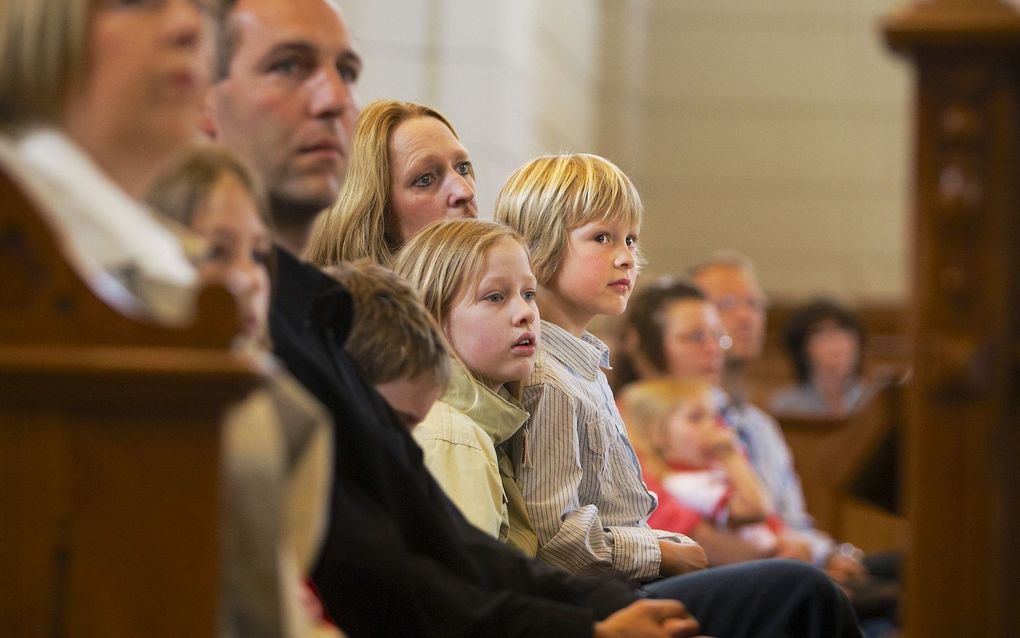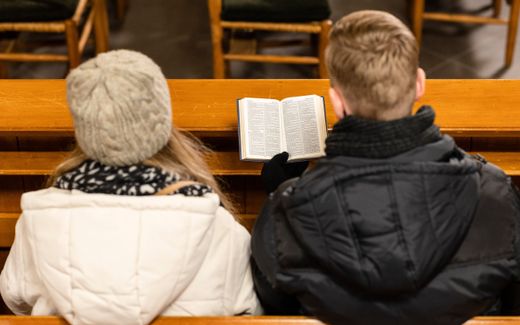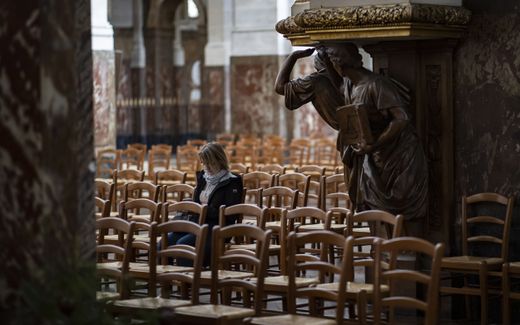Getting children makes us more religious, researchers say

What makes people to form larger families? Is that the religiosity? Or is the family stimulating the religiosity? From research, it seems that the second is true. Photo ANP, Robin Utrecht
European Union
It is a widespread idea that religious people have more children. But that is not true, researchers say. It is rather the other way around: having children makes you more religious.
The Norwegian daily Vart Land reports about new international research on this.
The general impression is that religious people are more oriented towards family and traditional values and therefore have a higher probability of marrying and having children. And for that reason, church-going families are larger than non-attending families.
Snapshot
This all sounds logical, admits prof. Morten Blekesaune from the Faculty of Social Sciences at the University of Agder in Norway. But still, research shows the opposite: Being religious does not make us marry and have more children – having children and getting married makes us more spiritual.
“Studies show that there is a clear connection between marriage, children and religiosity”, Blekesaune says in Vart Land. “But it only gives a snapshot and says nothing about the causal sequence.”
By comparing the development in people’s religiosity with when they get married and have children, Blekesaune has found a clear causal connection: Both marriage and children make us more religious. “Our statistical model shows that this effect can explain almost the entire discrepancy in fertility between religious and non-religious people.”
The effect was most prominent among those who were somewhat religious before and changed. The researchers saw that even the initially least religious group allowed themselves to be influenced.
Unmarried cohabitation does not have the same effect.
More involved
According to Blekesaune, the effect is pretty similar for women and men, although it has slightly different results. Women’s church attendance increases marginally more than it does for men. Still, they make up for this by becoming more involved in religious organisations.
Although the statistics clearly show the relations, they cannot explain why getting married and having children make us more religious. The research article gives some possible explanations. Blekesaune makes clear these are only suggestions.
The findings are presented in the article “Does forming a nuclear family increase religiosity?” in the journal European Sociological Review by prof. Morten Blekesaune (University of Agder) and Vegard Skirbekk (Department of Fertility and Health at the Institute of Public Health). The research is a statistical analysis of how the family formation and religiosity affect each other over time and attempts to explain the order of causes in this interaction.

The analysis is based on the British population survey, The British Household Panel Survey, which followed over 10,000 people between 1991 and 2009. Although the survey is British, Blekesaune believes there is reason to assume that the same applies in Norway.
Immediate effect
The degree of religiosity is measured according to three parameters:
- How important the respondents stated that religion was to their lives,
- how often they participated in religious ceremonies and,
- whether they were active in a religious organisation.
The article shows that getting married gives a small increase in religiosity while having children gives a larger increase. Cohabitation does not have the same effect.
Previous research shows that childbirth also affects other values, such as how trusting we are. But while this change is gradual, the increase in religiosity is almost immediate.
Related Articles








